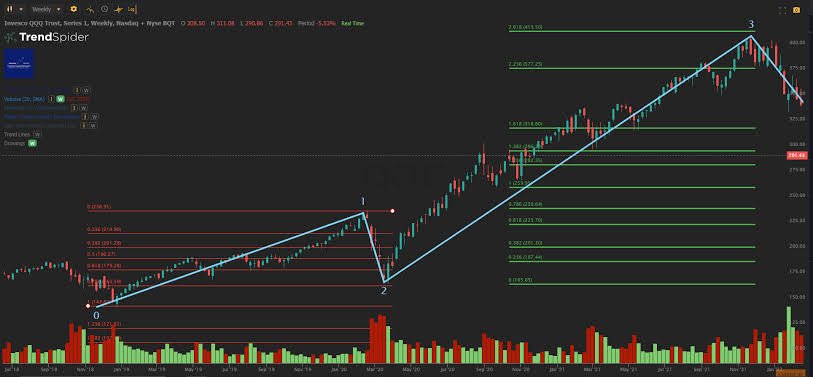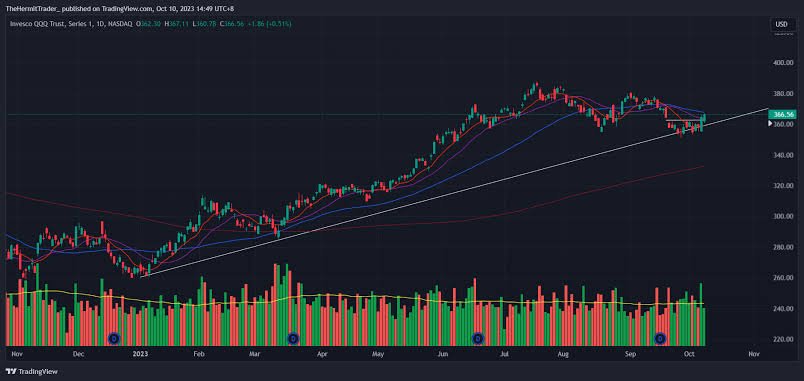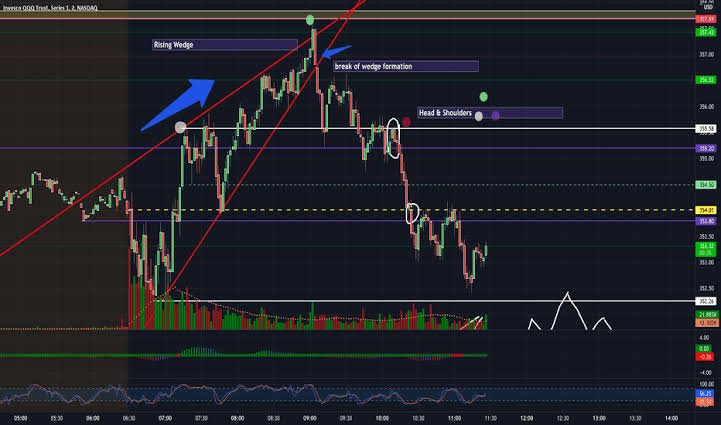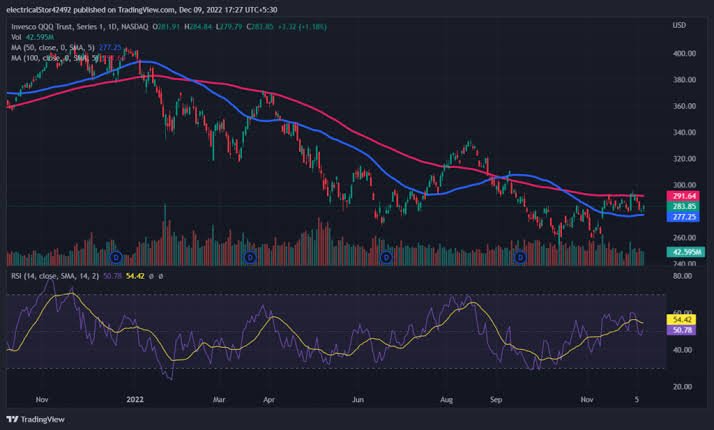Introduction to QQQ Stock
Welcome to the exciting world of QQQ stock, where every fluctuation tells a story of market dynamics and investor behavior. If you’ve ever wondered what drives the price movements of this popular exchange-traded fund (ETF), you’re in the right place. Join us as we delve into the factors that influence QQQ stock price fluctuations and explore strategies for navigating its volatility like a seasoned pro. Let’s uncover the mysteries behind QQQ stock price together!
Factors that Affect QQQ Stock Price Fluctuations

Understanding the factors that influence QQQ stock price fluctuations is essential for investors looking to make informed decisions in the market. Market trends and economic conditions play a significant role in determining the direction of QQQ stock prices. Positive economic indicators, such as strong GDP growth or low unemployment rates, can boost investor confidence and drive up stock prices.
Company performance and news also have a direct impact on QQQ stock price movements. Earnings reports, product launches, or mergers can all affect how investors perceive a company’s future prospects, leading to changes in its stock price. Investor sentiment and speculation further contribute to the volatility of QQQ stocks as emotions and market rumors can sway buying and selling decisions.
Additionally, technical analysis plays a crucial role in predicting potential price movements based on historical data patterns and trading volumes. By examining charts and indicators, traders can identify key support and resistance levels to inform their trading strategies amidst market fluctuations.
Market Trends and Economic Conditions

Market trends and economic conditions play a crucial role in influencing the fluctuations of QQQ stock prices. The overall performance of the market, including factors like interest rates, inflation, and GDP growth, can impact how investors perceive the value of tech-heavy ETFs like QQQ.
During periods of economic uncertainty or downturns, investors may become more risk-averse and decide to sell off their positions in growth-oriented stocks like those found in the QQQ index. On the other hand, when there is positive news on economic indicators or market sentiment improves, it could lead to a surge in demand for QQQ shares.
Global events such as trade wars or geopolitical tensions can also have ripple effects on market trends and subsequently influence QQQ stock prices. It’s essential for investors to stay informed about these external factors to make well-informed decisions when trading QQQ stocks.
Company Performance and News

When it comes to understanding QQQ stock price fluctuations, monitoring company performance and news is crucial. The financial health of the companies included in the QQQ ETF can directly impact its overall value in the market. Positive earnings reports, new product launches, or strategic partnerships can all drive up investor confidence and lead to an increase in stock prices.
On the flip side, any negative news such as a decline in sales, regulatory issues, or leadership changes can cause a dip in stock prices. Keeping a close eye on any developments related to the companies within the QQQ ETF can provide valuable insights into potential price movements.
It’s important for investors to stay informed about not only their individual holdings but also how broader market trends and economic conditions may influence company performance. By staying proactive and being aware of industry news and updates, investors can make more informed decisions when it comes to managing their QQQ stock investments.
Investor Sentiment and Speculation
Investor sentiment and speculation play a significant role in the fluctuations of QQQ stock prices. The emotions and opinions of investors can impact buying and selling decisions, causing prices to rise or fall rapidly.
Positive news about the tech sector or specific companies within the QQQ ETF can lead to increased optimism among investors, driving up stock prices. Conversely, negative developments may trigger fear and uncertainty, prompting investors to sell off their holdings.
Speculation also plays a part in determining stock prices. Traders who anticipate future market trends or company performance may buy or sell shares based on their predictions, influencing short-term price movements.
It’s important for investors to consider both sentiment and speculation when analyzing QQQ stock. Understanding market psychology can help individuals make informed decisions about when to buy, sell, or hold onto their investments.
Technical Analysis of QQQ Stock Price Movements
When it comes to analyzing QQQ stock price movements, technical analysis plays a crucial role in helping investors make informed decisions.
Technical analysts study historical price charts and trading volumes to identify patterns that can indicate potential future price movements. By using tools like moving averages, support and resistance levels, and indicators like RSI or MACD, analysts can gain insights into the stock’s direction.
Chart patterns such as head and shoulders, double tops/bottoms, or triangles are also used to predict possible trends. These patterns offer valuable information about market sentiment and potential buying or selling opportunities.
It’s important for investors to understand that technical analysis is not foolproof but rather a tool to complement fundamental analysis when making investment decisions. By combining both approaches, investors can have a more comprehensive view of the QQQ stock performance.
Strategies for Managing QQQ Stock Volatility
Navigating the ups and downs of QQQ stock price volatility can be a challenging task for investors. However, there are strategies that can help manage these fluctuations effectively.
One approach is diversification. By spreading your investments across different asset classes, industries, and regions, you can reduce the impact of any single stock’s volatility on your overall portfolio.
Another strategy is to stay informed about market trends and economic conditions. Keeping an eye on factors like interest rates, inflation rates, and geopolitical events can help you anticipate potential changes in QQQ stock price.
Additionally, setting stop-loss orders can help limit your losses in case the stock experiences a sudden drop. This risk management technique allows you to automatically sell your shares if they reach a predetermined price point.
Moreover, consider dollar-cost averaging as a way to invest consistently over time regardless of market volatility. This method involves buying more shares when prices are low and fewer when prices are high, helping to average out your cost per share over the long term.
Conclusion
As we wrap up our discussion on understanding QQQ stock price fluctuations, it’s clear that various factors come into play when analyzing its movements. From market trends and economic conditions to company performance and investor sentiment, the dynamics influencing QQQ stock are complex and ever-changing.
Investors must stay informed and adapt their strategies accordingly to navigate the volatility of QQQ stock successfully. By keeping a close eye on news developments, conducting thorough analyses, and considering different trading approaches, individuals can position themselves strategically in response to price fluctuations.
Remember that managing investments requires patience, diligence, and a deep understanding of the market forces at play. As you continue your journey in exploring the world of stocks like QQQ, always seek knowledge, stay proactive in your approach, and be prepared for both ups and downs along the way.




